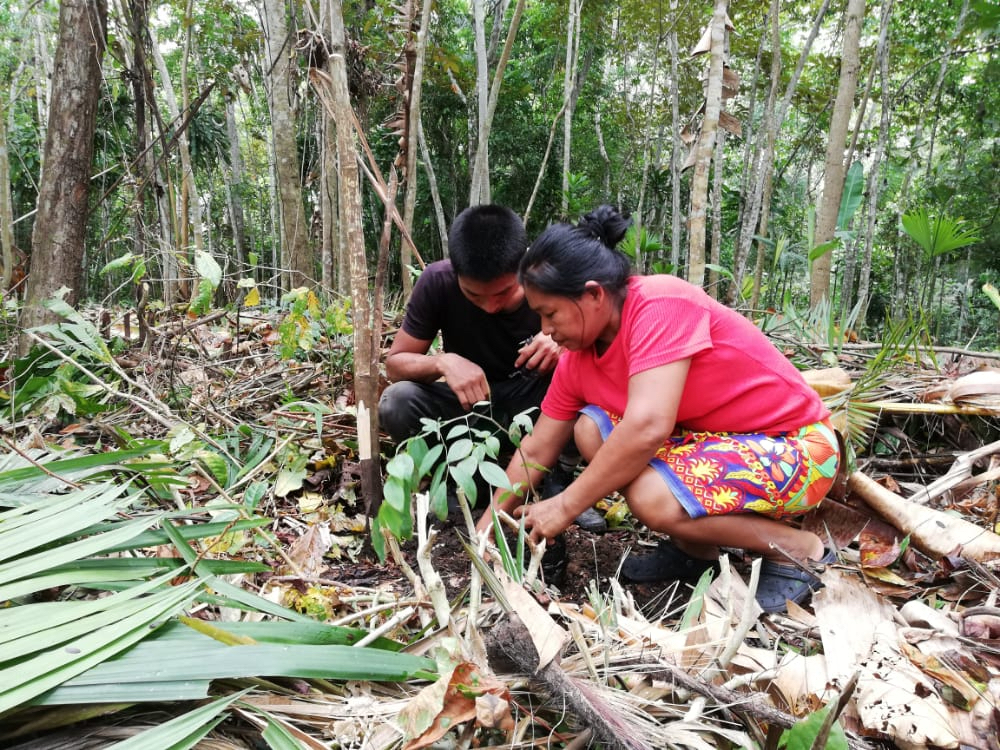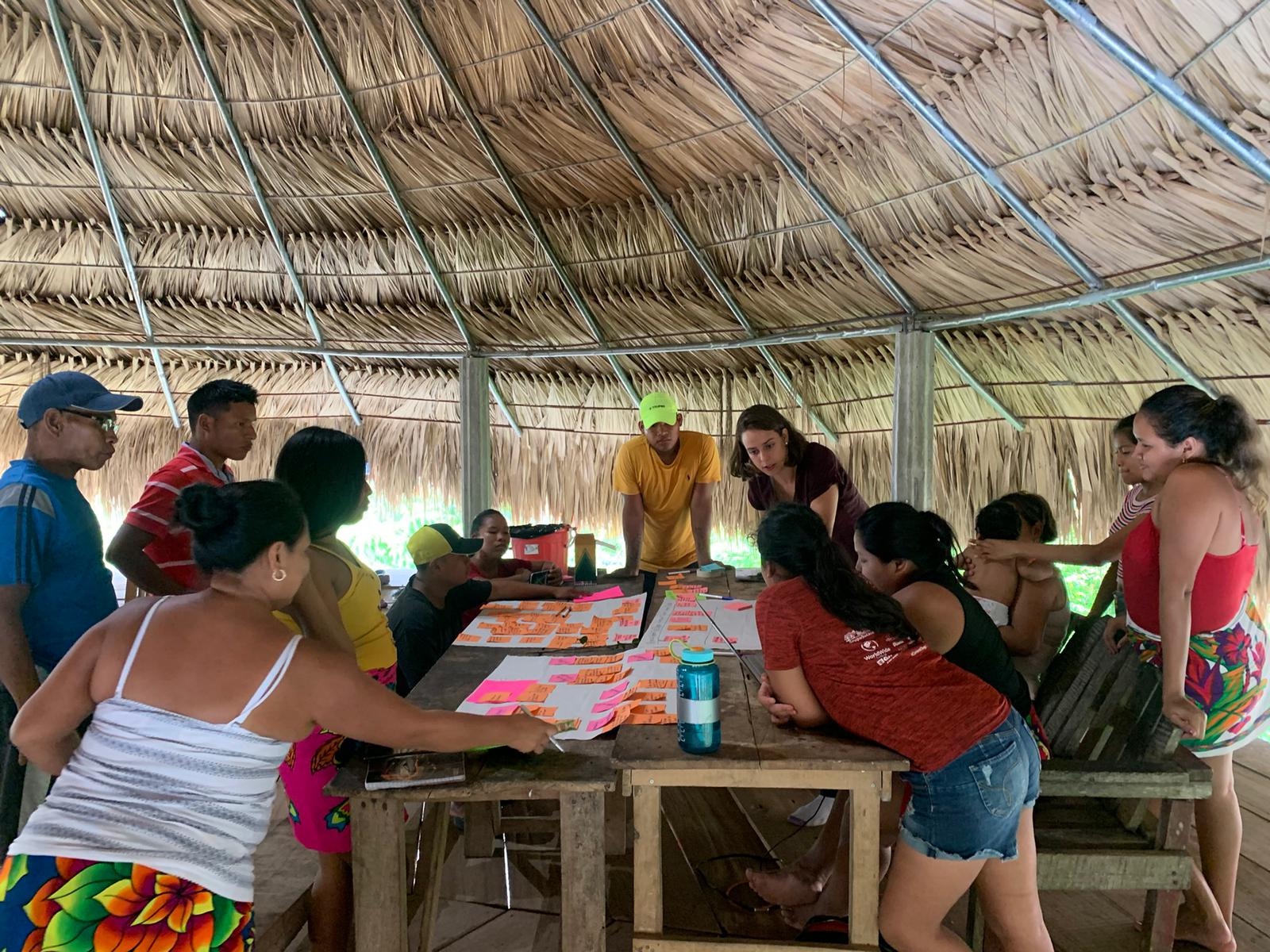
A collaborative initiative between McGill researchers and members of the Emberá nation in eastern Panama has been chosen as a 2022 Sustainability Awards finalist by the Association for the Advancement of Sustainability in Higher Education (AASHE).
The Bayano-McGill Reforestation Project, one of three finalists in the Campus Sustainability Achievement category, is being recognized for its efforts to restore forests in the Upper Bayano watershed of eastern Panama, while also fostering hands-on learning opportunities for students and generating socioeconomic benefits for local communities.
For the Emberá, this carbon-offsetting project creates “bosques de vida,” or forests for life, that increase food security, improve soil quality, and provide access to materials for traditional housing. The initiative also facilitates their transition to an economy centred around the forest, helping community members maintain sustainable livelihoods and uphold the fundamental relationship between their territory and culture.
McGill students can participate in the Bayano-McGill Reforestation Project through graduate research, research assistantships, or the University’s Panama Field Study Semester (PFSS). These experiences introduce them to new perspectives on nature-based climate solutions and the value of reforestation projects for rural Indigenous communities.
“Having the opportunity to learn from and exchange with the amazing communities of Ipetí and Piriatí Emberá has taught me so much about the beauty and complexity of implementing intercultural projects in a way that benefits both people and the environment,” says Katia Forgues, a McGill graduate student who began working on the project through the PFSS. More recently, she conducted interviews and led workshops to identify goals that local stakeholders want to achieve with the project.
Making progress on carbon neutrality
Since the Bayano-McGill Reforestation Project was established in mid-2020, Emberá community members have planted more than 44,500 trees. This amounts to nearly 45 hectares of reforested land and, with more than 1,000 tonnes of CO2e emissions offset so far, contributes to McGill’s long-term target to become carbon neutral by 2040.
While the University prioritizes reducing its greenhouse gas emissions as much as possible, unavoidable emissions, such as those from staff commuting or necessary business-related air travel, must be sequestered or offset. By co-developing and financing the Bayano-McGill Reforestation Project, the University aims to take accountability for its institutional emissions while contributing to important research.
“The Bayano-McGill Reforestation Project sets the standard for all sustainability projects at McGill,” says Executive Director of Sustainability Francois Miller. “We’re proud to support research that actively engages with the communities involved and allows the University to act in line with the climate science it produces.”
Supporting local Indigenous leadership

Building on long-standing relationships, the Bayano-McGill Reforestation Project began as an agreement between McGill, the Emberá traditional authorities, and the local women’s organization Asociación de Mujeres Artesanas de Ipeti-Emberá (AMARIE). On-the-ground coordinators and administrators of the project are local community members, and most of the saplings used for reforestation come directly from a nearby nursery.
“From the beginning, one of my hopes for this project was that it would allow marginalized people to benefit from the low-carbon economy and earn income from their use of sustainable land management practices,” says Catherine Potvin, a professor in the Department of Biology and the Canada Research Chair in Climate Change Mitigation and Tropical Forests (Tier 1). Potvin has been conducting participatory action research with Indigenous communities in Panama since the mid-1990s, and she was instrumental in fostering relationships between the project’s stakeholders.
Last spring, McGill was awarded $200,000 from the New Frontiers in Research Fund (NFRF) to support the Bayano-McGill Reforestation Project and the Old Growth Forest Observatory, another partnership project with Indigenous communities in eastern Panama. The purpose of the funding was to encourage innovative approaches to research in the context of the COVID-19 pandemic.
For McGill researchers, travel restrictions limited their ability to make field visits to Panama, opening opportunities for local Indigenous partners to take the lead. The funding was used to train community members in computer literacy, forest surveillance, and carbon calculation. The challenge of the pandemic highlighted the importance of local Indigenous leadership for the long-term sustainability of reforestation, forest conservation, and other nature-based climate solution projects.
“These Indigenous communities long for ways to be able to restore the forests on their land,” says Potvin. “When they talk about the project, they often say, ‘I’m planting trees for my children. I’m planting trees so they can keep their connection to the forest.’”
Watch Forests: The Green Gold of Panama’s Indigenous Peoples
